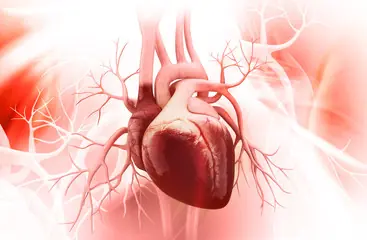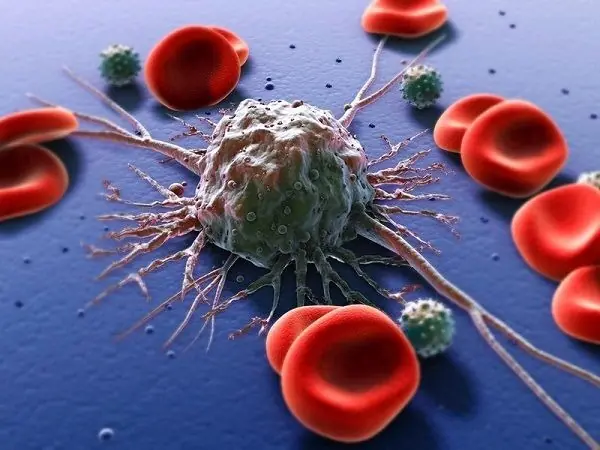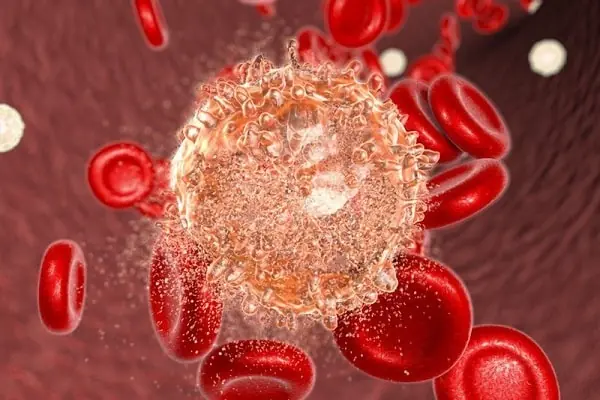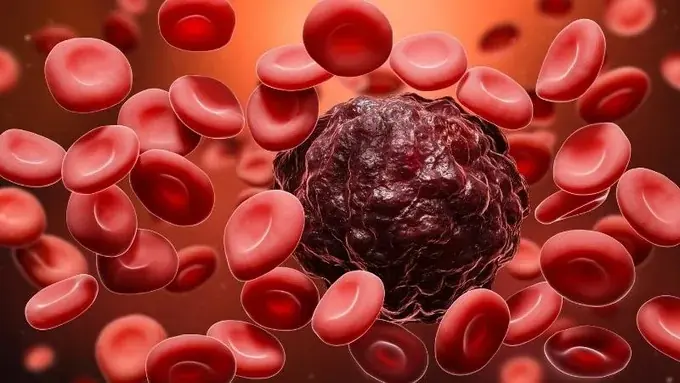
Stage 3 Colon Cancer Discovered Through a Symptom That Occurred 10 Times a Day
Cancer is often referred to as the “silent killer” because its symptoms can be vague, subtle, or mistaken for common ailments. Colon cancer is no exception. However, in some cases, persistent and unusual changes in the body can be the early warning signs that save a life. This is the story of how a seemingly simple symptom—occurring ten times a day—led to the diagnosis of stage 3 colon cancer and ultimately changed a life forever.
It began with something that many people might overlook: frequent bowel movements. John, a 52-year-old office worker, started noticing that he had to go to the bathroom much more often than usual. What used to be a once-a-day routine became two or three times, and eventually escalated to nearly ten times a day. At first, he dismissed it as a temporary digestive issue. He assumed it might be caused by stress, a change in diet, or even aging. But the problem persisted for weeks and soon started interfering with his daily life.
Each trip to the restroom was accompanied by mild abdominal discomfort and sometimes traces of blood in the stool. That was when John decided it was time to see a doctor. His physician initially suspected irritable bowel syndrome (IBS) or hemorrhoids, both common conditions. However, given his age and the frequency of symptoms, the doctor ordered a colonoscopy to rule out more serious problems.
The results were shocking: a large malignant tumor was found in the descending colon. A biopsy confirmed it was stage 3 colon cancer, meaning the cancer had already spread to nearby lymph nodes but had not yet metastasized to distant organs. The frequent bowel movements—10 times a day—were not just a digestive issue, but a critical warning sign from his body.
John's story underscores the importance of paying attention to persistent and unusual symptoms. Many people feel embarrassed to talk about bowel habits, but such discomfort can delay diagnosis and treatment. In John’s case, early detection—even at stage 3—gave him a strong fighting chance. He underwent surgery to remove the tumor and surrounding lymph nodes, followed by several months of chemotherapy. The road to recovery was not easy, but his doctors were optimistic, and John remained determined.
Colon cancer is the third most common cancer worldwide, and its symptoms can include changes in bowel habits, blood in the stool, unexplained weight loss, fatigue, and abdominal pain. What makes it dangerous is that many of these symptoms can be confused with less serious conditions. That’s why awareness and regular screenings are crucial, especially for people over 50 or those with a family history of colorectal cancer.
John’s case highlights how a single symptom—frequent bowel movements—served as the body’s alarm bell. Had he ignored it longer, the cancer might have progressed to stage 4, significantly reducing his chances of survival. Instead, early medical attention allowed him to begin treatment promptly and gave him a second chance at life.
In conclusion, while not every case of frequent bowel movements signals cancer, any persistent change in bodily functions should be taken seriously. Listening to your body can make all the difference. John’s story is a powerful reminder that even symptoms that seem minor or embarrassing may carry life-saving information. When it comes to health, it’s always better to ask questions early than to face regret later.
News in the same category


5 Common Recurring Illnesses That May Be Warning Signs of Cancer

Mold Illness: What It Is and Hidden Signs You Have It

Cold Water vs. Warm Water: Which is Better For Your Health?

How to Get Rid of Bad Breath (Halitosis): Scientifically Proven Home Remedies

Do You Sleep With Your Cat? You Could Be At Risk For This Silent, Deadly Disease

10 Habits That Harm Your Heart That You Probably Didn’t Know About

15 Common Cancer Symptoms You Shouldn’t Ignore

The Anti-Cancer Diet: Evidence-Based Cancer-Fighting Foods for Prevention

If Your Nails Show These Signs, Get Checked Immediately

How Long a Person Can Live: You Can Tell Just by Looking at These 4 Key Areas

A Newly Discovered Drink That Fights Cancer: It's Not Tea or Coffee

Proven Health Benefits of Celery & Nutritional Facts (Evidence-Based)

Mold Illness: What It Is, Hidden Signs, and How to Protect Your Home

80% of Heart Attacks Are Preventable: Embrace These 5 Simple Habits

Is Cancer Hereditary? Helpful Tips to Prevent the Growth of Cancer Cells

Warning from Hospitals: Eating This Type of Meat Every Day Can Increase Cancer Risk – Don’t Be Complacent!

3 Pain Areas on the Body That Could Signal Early-Stage Cancer: Don’t Delay, or It Could Spread

Natural Solutions for Gout: Tackling Uric Acid to Prevent Pain
News Post

Should Men Give Up Their Seats on Public Transport for Women? Battle Breaks Out Over Londoner’s Viral Clip

The Reason Why You Start Waking Up Earlier As You Get Older

People Apparently Still Don’t Know What Paprika Is Made From

Scientists Say That The Brain Senses Emotions In Others Without You Even Knowing It

Rubbing Ginger on the Soles of Your Feet Before Bed: Discover the ‘Miraculous’ Health Benefits

5 Common Recurring Illnesses That May Be Warning Signs of Cancer

Mold Illness: What It Is and Hidden Signs You Have It

Cold Water vs. Warm Water: Which is Better For Your Health?

How to Get Rid of Bad Breath (Halitosis): Scientifically Proven Home Remedies

Do You Sleep With Your Cat? You Could Be At Risk For This Silent, Deadly Disease

The Ultimate Stand: A Woman's Fight to Reclaim Her Dream Home from Entitled In-Laws and an Irresponsible Husband
Discover the inspiring story of a woman who worked tirelessly to build her dream home, only to have it claimed by her husband’s family. A tale of strength, resilience, and the ultimate stand for respect and self-worth.

Lip Reader Reveals Shocking Words CEO Said To Woman On Coldplay Kiss Cam

3 Incredible Airplane Stories That Will Leave You Speechless
Discover three shocking and heartwarming true stories that prove anything can happen when you’re 30,000 feet in the air. From conmen to surprising proposals, these tales will leave you in awe.

I Didn't Tell My Husband's Family I Speak Their Language, and It Helped Me Uncover a Sh0cking Secret About My Child
What happens when secrets are buried in a marriage? Discover how a simple misunderstanding and language barrier uncovered shocking truths. Read the story of betrayal, love, and trust in this emotional tale.

“I’m Done Paying!” — The Day She Finally Stood Up to Her Husband’s Family Li3s
Alina, tired of being the financial lifeline for Sergey and his mother, decides it’s time to put herself first. After uncovering the truth about their living situation, she confronts Sergey, forcing him to face the consequences of his neglect. What foll

She Was Paying Rent for Two Years — Until a Stranger in the Elevator Said One Sentence That Changed Everything
For two years, she thought she was paying rent — until a neighbor revealed the apartment belonged to her husband’s mother. Anna quietly uncovered the truth behind the monthly payments, and when the facts were undeniable, she chose to walk away — wi

A little girl shares her lunch with a hungry classmate — years later he shows up at her wedding, and who would have thought
In the noisy cafeteria of an elementary school, a little girl named Lilia noticed a lonely boy with an empty tray. She shared her lunch, expecting nothing in return. Years later, as she stood at the altar in her wedding dress, that same boy—now a succes

Homeless Dad of Four Gives His Last $2 to a Stranger—Wakes Up to a Life-Changing Surprise!
When Brandon, a homeless father of four, gave his last $2 to help an elderly man buy a bottle of water, he had no idea that simple gesture would turn his life upside down. The next day, he inherited a massive company and a lavish estate—only to find him

After the Divorce, My Dad Always Chose His New Family's Kids—But He Didn't Expect This at My Graduation Party
They say family is everything, but sometimes, it’s the family that hurts you most. My name is Sharon, and I’ll never forget the day my father’s favoritism towards his new family crossed the line—only to learn the hard way that actions have consequ